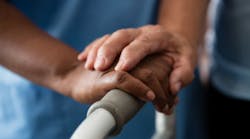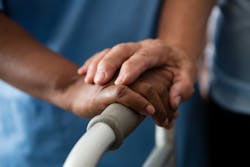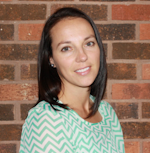Striking a nerve on the topic of frustrating dental hygiene in nursing homes
I feel that I need to spend just a bit of time discussing my last article, “‘Disgusting, frustrating, upsetting’: When dental hygiene in a nursing home doesn’t go as planned.” Take a moment to read it if you haven’t, then come back and hear me out.
I have to admit, I was a bit nervous to write that one, simply because it contained so much emotion, so much truth. The funny thing about the truth is that some will hear it and be gracious, and some will hear it and become defensive; both reactions are OK. This article seemed to have struck a nerve, and I say this because I received many emails from hygienists and dentists from all over the country reacting to the article.
Oral health care for our elderly populations within care facilities is almost nonexistent, despite the presence of a dental professional providing training and home care recommendations to the staff.
Many of the emails were encouraging, thanking me for taking the time to deliver this care, thanking me for verbalizing what some couldn’t, thanking me for putting this out there for the world to read! Some of the emails were from other frustrated clinicians who see the same type of neglect come through their private practices, or in their own experiences providing care within a facility. Many of the responses were invitations to connect. They want to hear more about my process and experience, more about how they can branch into providing this type of care. What struck me as I read through and responded to them all, was that no matter where their emails were coming from geographically, we all are facing the same situation. Oral health care for our elderly populations within care facilities is almost nonexistent, despite the presence of a dental professional providing training and home care recommendations to the staff.
This is another frustrating outcome that I am seeing and hearing about. Each time I provide care at my facility, I provide a report for the facility to keep in the records of each resident I see. That report contains what services were completed, referral recommendations, and oral home-care instructions. I detail the type of daily care these residents need to help reduce risk for decay and dental emergencies. Each resident is referred to their dentist for an exam and hygiene care (per my collaborative agreement requirements, the preventive care I provide does not replace any care provided in their dental home). I have not asked what exactly happens to those reports . . . do they get read and reviewed with the staff that is caring for that specific resident? Do they get placed in their record and forgotten? This is something that I need to clarify, as nothing I write on those papers seem to make any difference.
Pondering the curious detail that educating facility staff on oral health and related systemic conditions doesn’t seem to make much of a difference in the health of the residents truly does help me remain confident that my goal of seeing a dental hygienist on staff in these types of facilities is needed. One of my readers contacted me and kindly reminded me that there is another side of facility care that I was not considering when I was seeing these residents, that my anger and frustration with the staff was possibly unfair depending upon the situation.
The reader walked me through many situations that could have limited the delivery of oral health care to “Fred,” and I have to admit that some of the situations I had not considered before—specifically, the fact that these residents may be more cooperative with me because I have introduced myself as a dental hygienist. This role is familiar to residents and they know what I will be doing based on my title, that is, I will be looking in and caring for their mouth. They sit in my dental chair and this is a familiar thing for them, so they remember what to expect during their time in my chair. These details further solidify the previously stated goal—promoting the idea that a dental hygienist is needed and has a place in care facilities.
A dental hygienist is needed and has a place in care facilities.
Please do not misunderstand me. I appreciate, respect, and thank the facility staff for the love, care, and attention that they do provide to their residents. I see evidence of that every time I am there, from kind caring words to gentle hands providing assistance. I have not witnessed any mistreatment of any resident and no one appears rushed or irritated when caring for these residents. I do not ever see anyone without something to do or someone to care for. I know that the staff have a long list of responsibilities that need to be carried out every day. It is not my intent to further add to that long list of duties and contribute to a situation where there is too little time and too many things to do, as this would and does lead to things being left out and not completed. My goal is to have a dental hygienist work alongside the staff, helping to care for the residents in the specific area of oral health.
There are many things to consider when pushing forward towards this goal. The dental hygiene scope of practice differs state by state, and either allows us a foot in the door or denies us the opportunity to even consider the possibility. On the other side of that are the requirements for the facility: What are their obligations and responsibilities regarding oral care for their residents? I have not dug into this particular question much. In the facility I am at, it appears that they need to be able to address dental emergencies within three days and arrange appointments if requested by a resident or his or her relatives. I have come across some information that suggests that the residents should have their oral condition evaluated upon admission to the facility and then reviewed periodically throughout their stay. I do not know what this evaluation consists of, but I do know that it is not being carried out by a dental professional.
Thank you again for taking the time to follow me as I navigate this process. Please feel free to reach out with any suggestions, ideas, thoughts, or insights. I welcome any kind of feedback, as I know there are many angles to this issue, many of which I have not considered and or have no experience with. Reach me at [email protected].
Editor's note: This article first appeared in RDH eVillage. Click here to subscribe.









